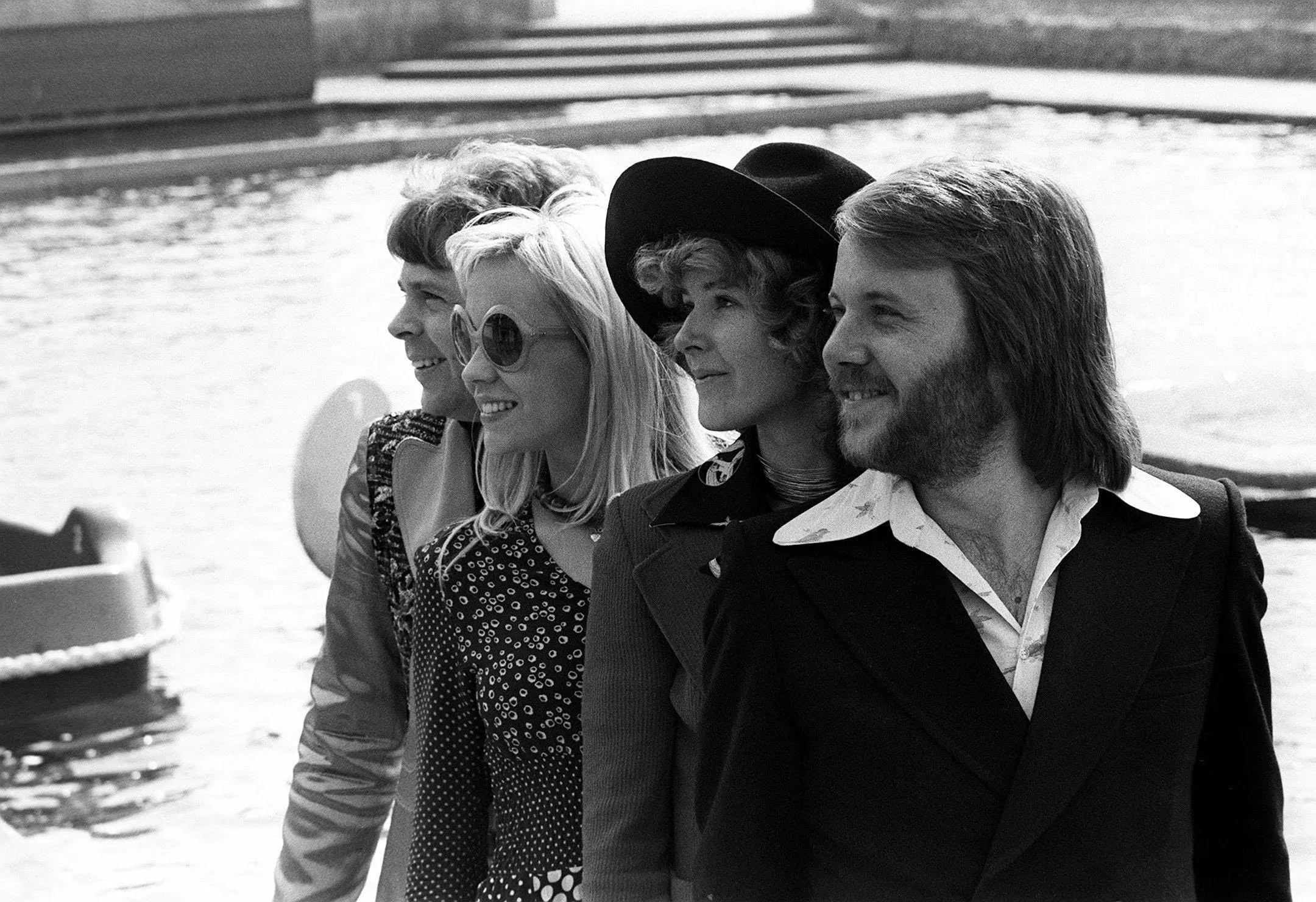ABBA: Against All Odds, directed by James Rogan and produced for BBC/Netflix to mark the 50th anniversary of the quartet’s 1974 Eurovision victory, frames its narrative entirely through archival material. Spanning the watershed moment in Brighton when “Waterloo” vaulted Sweden onto the pop stage through the group’s gradual withdrawal by the early 1980s, the documentary invites viewers into a time capsule of sequined jumpsuits and television broadcasts.
Rogan’s choice to forgo new, on-camera interviews underscores the film’s role as a living scrapbook: viewers sense the electricity of live performance and press clippings exactly as they appeared. This approach foregrounds how historical artifacts can speak across decades, offering both immediacy and distance.
As the doc unfolds, it quietly asks why remembering ABBA’s inception matters now—when globalization has remixed cultural exchange into instantaneous digital streams, Rogan’s film reminds us that even pop sensations emerge from specific national contexts before accelerating across borders.
From Eurovision Triumph to Global Phenomenon
The sequence begins at the 1974 Eurovision Song Contest in Brighton, where ABBA’s unexpected victory with “Waterloo” stunned both the British tabloids and European music press. Archival footage captures the stunned reactions—commentators brushing off the win as “plastic pop”—even as the quartet basks in continental adulation.
As the film cuts to stadium crowds in Stockholm and Wembley Arena rehearsals, it traces the group’s ascent across Europe and Australia between 1974 and 1976: early singles like “Mamma Mia” and “Fernando” dominate charts and TV variety shows alike.
Yet when the narrative shifts to North America in the late ’70s, we witness a collision of cultural forces: disco’s backlash (Disco Demolition Night) and punk’s anti-establishment surge frame ABBA’s attempts to crack the U.S. market.
Clips of their appearance on Olivia Newton-John’s American TV special, juxtaposed with Johnny Farnham’s Australian Countdown, reveal how local broadcast conventions shaped audience reception. Finally, the story arcs toward their six-night run at Wembley in 1979, bookending the film with both triumph and the sense that peak pop glory is fleeting.
Melody, Image, and the Archive as Storyteller
Rogan structures the documentary around ABBA’s own songs, using each hit as a narrative milestone. Behind-the-scenes audio—like Agnetha’s recollection of goosebumps during “Dancing Queen”—anchors melodic craftsmanship in personal testimony.
Visually, the film revels in sartorial spectacle: Björn’s electric-guitar fireworks on the Eurovision stage and Frida and Agnetha’s satin jumpsuits with winged panels speak to 1970s flamboyance. Rare television segments—such as the quartet performing live behind the Iron Curtain in Poland, or the drenched opening of their 1977 Australian tour—demonstrate how broadcast standards and local production values shaped on-screen presentation.
Rogan’s editing stitches together still photographs, concert footage, and print headlines with a rhythm that echoes a pop song’s verse–chorus structure. At moments, frenetic montages of press reactions underscore the tension between ABBA’s polished image and the punk movement’s stripped-down ethos. The result is a tapestry of performance and press, one that foregrounds how pop culture artifacts can be repurposed to craft a cohesive narrative across decades.
Interpersonal Currents and Lasting Echoes
Beneath the spectacle, the documentary explores the personal bonds and fractures at ABBA’s center. Archival interviews reveal how Björn and Agnetha’s marriage—each balancing childbearing with international touring—strained under the demands of superstardom, while Frida and Benny navigated their own domestic pressures.
Sound bites about Agnetha’s fear of flying and backstage exhaustion humanize the quartet beyond their glitter. Cultural headwinds also emerge: Swedish youth decried ABBA’s music as having “no more soul than a can of herring,” and U.S. rock fans directed racist and homophobic vitriol at disco acts—even as gay clubs turned “Gimme! Gimme! Gimme!” into an anthem.
These conflicts illustrate how regional histories and societal attitudes filter global pop. Yet the film also gestures to ABBA’s afterlife: the Mamma Mia! franchise, holographic “ABBAtar” concerts, and vinyl resurgences testify to melodies that continue to resonate worldwide.
By situating personal struggles within broader cultural debates, Rogan’s archival portrait highlights the interplay between local origins and international legacy—inviting viewers to consider how pop artifacts become shared heritage.
Full Credits
Director: James Rogan
Producers: Dan Hall
Executive Producers: Jan Younghusband, Soleta Rogan, Nicholas Franklin
Editors: Esther Gimenez, Ellis Frodsham
Composers: Tom Howe, Steve Tait
Cast: Agnetha Fältskog, Björn Ulvaeus, Benny Andersson, Anni-Frid Lyngstad, Stig Anderson, Richard Skinner, Judd Lander, Ana Martínez del Valle, Mikael Wiehe, Ingmarie Halling, Leif Schulman, Michael Chugg, Paul Gambaccini, Carl Magnus Palm, Germaine Greer, Vivien Goldman, Teddie Dahlin, Steve Binder, Jim Farber, Olivia Newton-John, Nile Rodgers, Patrick Woodroffe, Don Lane, Ian ‘Molly’ Meldrum, Mike Yarwood
The Review
ABBA: Against All Odds
ABBA: Against All Odds brilliantly harnesses archival footage to map the quartet’s journey from Eurovision underdogs to global pop icons, revealing how Swedish sensibilities met and sometimes clashed with international trends. Its purely historical lens may leave viewers craving fresh commentary, but the vivid performances and candid soundbites underscore both personal stakes and cultural shifts. As a time capsule of 1970s pop culture, it both educates and entertains, reminding us why ABBA’s melodies still travel across borders.
PROS
- Rich archival footage that immerses viewers in 1970s pop culture
- Memorable musical moments accentuated by original audio clips
- Clear depiction of cultural clashes (Eurovision fandom vs. punk/disco backlash)
- Vivid costume and performance visuals highlight ABBA’s aesthetic
- Touches on personal dynamics without overwhelming the music focus
CONS
- No new, on-camera interviews to offer fresh perspectives
- Chronology can feel fragmented without a guiding narrator
- Limited analysis of ABBA’s post-1982 influence
- Purely historical approach may underwhelm viewers seeking critical depth
- Occasional pacing lulls between major milestones
